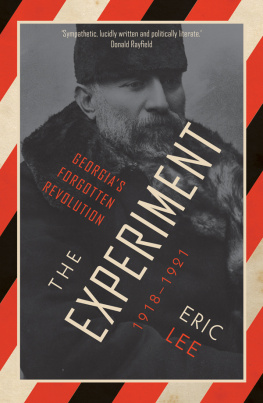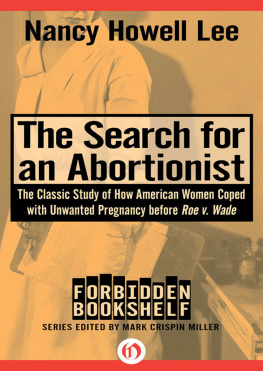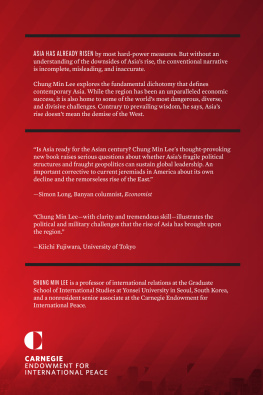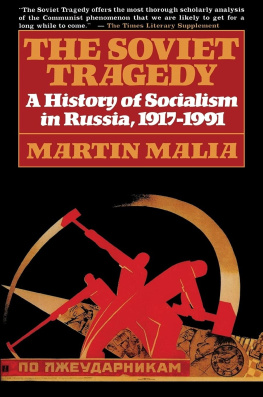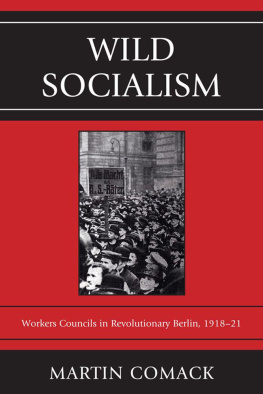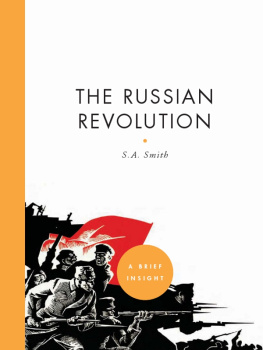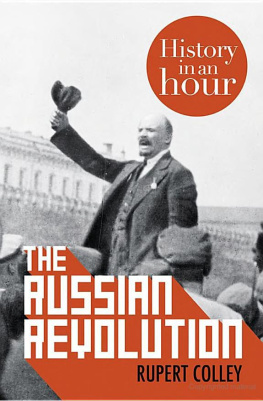
PRAISE FOR THE EXPERIMENT
A sympathetic, lucidly written and politically literate account of the first Georgian Republic, which makes exhaustive use of the accounts of foreign observers as well as some of the major leading figures.
Donald Rayfield, author of Stalin and His Hangmen
Covering a crucial but strangely overlooked period in the fevered evolution of socialism, weve been waiting for this book for a long time. Fortunately, it arrives excellently written and researched.
Peter Nasmyth, author of Georgia: In the Mountains of Poetry
In a clear and succinct style, Eric Lee paints a sympathetic portrait of this remarkable experiment in democratic socialism. Lee has brought this almost unknown story out of the shadows, giving it its proper place in the historiography of socialism and the Russian Revolution.
Stephen Jones, author of Socialism in Georgian Colors
Eric Lee has skilfully shown in this thoroughly-researched book how a century ago Georgia created the first democratic socialist republic and laid the basis for Georgian democracy today.
H.E. Ambassador Tamar Beruchashvili
PRAISE FOR ERIC LEES PREVIOUS BOOK OPERATION BASALT
Riveting
Wall Street Journal
An authentic and compelling read
Damien Lewis, best-selling author of The Nazi Hunters and Churchills Secret Warriors
THE
EXPERIMENT
GEORGIAS FORGOTTEN
REVOLUTION 19181921
ERIC LEE

The Experiment: Georgias Forgotten Revolution 19181921 was first published in 2017 by Zed Books Ltd, The Foundry, 17 Oval Way, London SE11 5RR, UK
www.zedbooks.net
Copyright Eric Lee 2017
The rights of Eric Lee to be identified as the author of this work have been asserted by him in accordance with the Copyright, Designs and Patents Act, 1988
Typeset in Bembo Std by seagulls.net
Index: Eric Lee
Cover design: David A. Gee
Cover photo National Archives of Georgia: Karlo Chkheidze, member of the Russian State Duma, president of the Petrograd Soviet of Workers and Soldiers Deputies, and later chairman of the Constituent Assembly of the Georgian Republic
All rights reserved. No part of this publication may be reproduced, stored in a retrieval system or transmitted in any form or by any means, electronic, mechanical, photocopying or otherwise, without the prior permission of Zed Books Ltd.
A catalogue record for this book is available from the British Library
ISBN 978-1-78699-093-8 hb
ISBN 978-1-78699-092-1 pb
ISBN 978-1-78699-094-5 pdf
ISBN 978-1-78699-095-2 epub
ISBN 978-1-78699-096-9 mobi
Dedicated to the memory of Karl August Wittfogel (18961988), Max Shachtman (19041972), Arieh Yaari (19182005), Michael Harrington (19281989) and Tom Milstein (19432012).
CONTENTS
TIMELINE
1783 | Georgia signs the Treaty of Georgievsk, putting it under Russian protection. |
1801 | Russia begins the annexation of Georgia. |
1868 | Birth of Noe Zhordania. |
1878 | Birth of Joseph Stalin. |
1892 | mesame dasi (The Third Group), Georgias first Marxist organisation, is formed. |
1904 | Outbreak of a peasant rebellion in the western Georgian province of Guria. |
19056 | Russian Revolution; in Georgia, Guria falls under the complete control of the Social Democrats. |
1906 | Gurian Republic ends as Russian troops re-occupy the district. Elections to the first State Duma; in this and future Duma elections, the Social Democrats win large majorities in Georgia. |
1917 | In March, the tsar abdicates. The Provisional Government asserts its authority over all of Transcaucasia. In November, the Bolsheviks seize power in Petrograd. Elections take place across the former Russian empire for the Constituent Assembly; in Georgia, the Social Democrats win a large majority. The Peoples Guard is formed in Georgia and seizes weapons from the Tiflis arsenal in a daring raid. |
1918 | In January, the Bolsheviks disperse the Constituent Assembly by force. Transcaucasia declares independence, but the federation lasts for just one month. On 26 May, Georgia declares independence. Peace agreement signed with Turkey following mediation by the Germans, who then occupy Georgia. In December, a brief war breaks out with Armenia. The First World War ends in a German defeat; Britain begins to move forces into Transcaucasia. |
1919 | Elections to the Georgian Constituent Assembly; several parties compete and the Social Democrats win a landslide victory. The British occupation of Georgia begins. General Denikins Volunteer Army engages in border clashes with the Georgians. Rising tension between the British, who support Denikin, and the Georgians. On 7 November Georgian Communists make a failed coup attempt. |
1920 | On 2 May, the Communists make a second failed coup attempt. Shortly afterwards, Russia and Georgia sign a peace treaty. In exchange for Russian recognition, the Georgians legalise the Communist Party. The British forces complete their withdrawal from Georgia. The other two Transcaucasian republics, Armenia and Azerbaijan, fall under Soviet rule. In September, a delegation from the Second International arrives in Georgia. |
1921 | In February, the Russian army invades Georgia and after several weeks of fighting establishes Soviet rule, forcing the Georgian Republics leaders into exile. Sporadic rebellions break out against Soviet rule, most notably in the province of Svanetia. |
1923 | The Georgia Social Democratic Party is forced to dissolve but continues its existence underground. Key Georgian Menshevik leaders return covertly to the country from exile. |
1924 | Under the leadership of the Social Democrats, armed rebellion breaks out across the country. It is bloodily suppressed and Soviet rule firmly established. |
1953 | Stalin and Zhordania die. |
1956 | Following Khrushchevs secret speech at the 20th Congress of the Communist Party of the Soviet Union in which Stalin was denounced, pro-Stalin demonstrations break out in Georgia and are bloodily suppressed. |
1978 | Demonstrations break out in Tbilisi following a Soviet constitutional reform that removed Georgian as the official state language; the regime concedes to the protestors demands. |
1985 | Mikhail Gorbachev begins a process of democratic reform in the Soviet Union, and names Georgian Communist leader Eduard Shevardnadze as his foreign minister, to preside over the end of the Cold War. |
1989 | Pro-independence demonstration in Tbilisi ends with twenty dead and hundreds wounded as Soviet troops open fire. |
1990 | Georgia holds its first free elections since 1919 as a pro-independence party wins and the Communists receive only 30% of the vote. |
1991 | On 9 April Georgia declares independence, reviving the 1921 Constitution and the national flag of that period. On 26 May, the 73rd anniversary of Georgian independence, presidential elections are held. The newly elected president, former dissident Zviad Gamsakhurdia, lasts barely seven months in power before being overthrown in a coup. Former Georgian Communist Party leader Shevardnadze comes to power the following year. |
Next page
